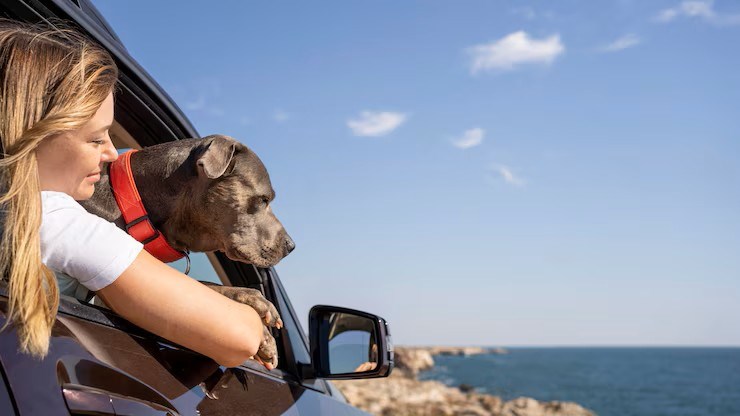Travelling by car with your dog can seem like an easy way to get from A to B, but it comes with serious risks, especially when it comes to heat. Every year, dogs suffer or die from overheating in cars, often because their owners didn’t realise the danger. Even on seemingly mild days, the temperature inside a vehicle can become deadly in minutes.
Dogs Overheat Quickly
Unlike humans, dogs don’t sweat through their skin. They cool down mainly by panting, which is much less effective. This means that it’s easy to miss the signs that your dog is struggling and by the time they show visible distress, it can already be too late.
Air Conditioning May Not Help
Many owners assume that keeping the air conditioning on is enough, but here’s the problem: in most vehicles, the cool air doesn’t effectively reach the back seats or the boot area. If your dog is travelling in the rear of the car and especially in an enclosed space like an estate boot, they may still be exposed to dangerously high temperatures.
Beware the Sun Through the Window
Even with the windows up and the air conditioning running, direct sunlight can heat up the area where your dog is sitting. A patch of sun on the backseat or boot can feel like an oven to a dog who can’t escape it. Always check where the sun will be during your journey and use sunshades where possible.
Top Tips for Safe Car Travel with Your Dog:
- Avoid the boot: Especially if it’s enclosed or lacks ventilation.
- Use a harness on the back seat with access to air vents.
- Open windows slightly (if safe) to improve airflow.
- Never leave your dog alone in the car, even for a few minutes.
- Stop regularly for water, shade, and toilet breaks.
- Touch test: If the seat or floor feels hot to your hand, it’s too hot for your dog.
Know the Signs of Heatstroke:
- Heavy panting
- Excessive drooling
- Weakness or collapse
- Red or pale gums
- Vomiting or diarrhoea
If you suspect your dog is overheating, stop immediately, move them to a cool, shaded area, offer water, and contact a vet.
Your dog trusts you to keep them safe. A bit of extra care while travelling can save their life.
